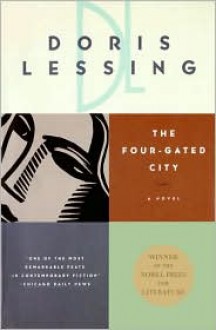Dorris Lessing's classic series of autobiographical novels is the fictional counterpart to Under My Skin. In these five novels, first published in the 1950's and 60s, Doris Lessing transformed her fascinating life into fiction, creating her most complex and compelling character, Martha...
show more
Dorris Lessing's classic series of autobiographical novels is the fictional counterpart to Under My Skin. In these five novels, first published in the 1950's and 60s, Doris Lessing transformed her fascinating life into fiction, creating her most complex and compelling character, Martha Quest.Author Biography: Doris Lessing was born Doris May Taylor in Persia (now Iran) on October 22, 1919. Both of her parents were British: Her father, who had been crippled in World War I, was a clerk in the Imperial Bank of Persia; her mother had been a nurse. In 1925, lured by the promise of getting rich through maize farming, the family moved to the British colony in Southern Rhodesia (now Zimbabwe). Her mother installed Doris in a covenant school, and then later in an all-girls high school in the capital of Salisbury, from which she soon dropped out. She was 13, and it was the end of her formal education.Lessing's life has been a challenge to her belief that people cannot resist the currents of their time, as she fought against the cultural and biological imperatives that fated her to sink without a murmur into marriage and motherhood. Lessing believes that she was freer than most people because she became a writer. For her, writing is a process of "setting a distance," taking the "raw, the individual, the uncriticized, the unexamined, into the realm of the general."Lessing's fiction is deeply autobiographical, much of it emerging out of her experiences in Africa. Drawing upon her childhood memories and her serious engagement with politics and social concerns, Lessing has written about the clash of cultures, the gross injustices of racial inequality, the struggleamong opposing elements within an individual's own personality, and the conflict between the individual conscience and the collective good.Over the years, Lessing has attempted to accommodate what she admires in the novels of the 19th century — their "climate of ethical judgment"
show less






 47 years ago
47 years ago